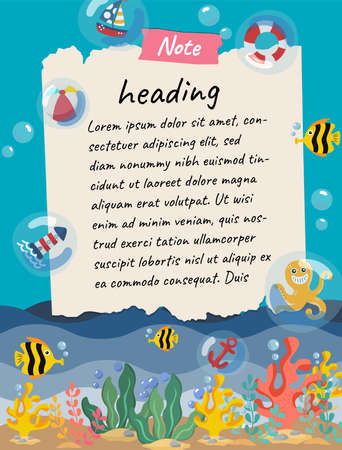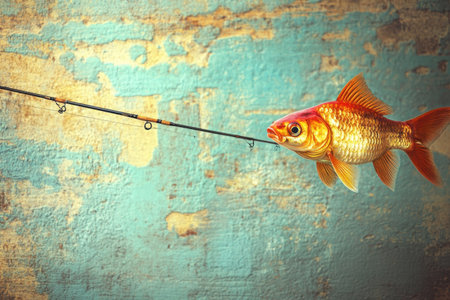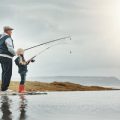Understanding Sea Fishing Competitions in the UK
Stepping into the world of sea fishing competitions in the UK is both exciting and a little bit nerve-wracking, especially if it’s your very first time. British coastal communities have a long-standing love for sea angling, and their competitions are often as much about camaraderie and local pride as they are about catching the biggest fish. Across the country, you’ll find a variety of events tailored to all levels, from friendly local matches on a pebbled beach to grander open tournaments drawing anglers from near and far.
Sea fishing contests in the UK come in different shapes and sizes, each with its own flavour. You might stumble upon a ‘species hunt’ where the aim is to catch as many different types of fish as possible, or perhaps a ‘biggest fish’ match where only size matters! There are also ‘rover’ competitions, giving you freedom to choose any spot along a stretch of coastline, and pegged matches where everyone fishes within marked zones. Most events have clear rules—like minimum fish sizes, designated fishing times, and sometimes even restrictions on bait—to keep things fair and sustainable for our precious marine life.
| Type of Competition | Main Focus | Typical Rules | Common Target Species |
|---|---|---|---|
| Species Hunt | Variety of catches | Catch and record as many species as possible; points per species | Bass, mackerel, dogfish, wrasse |
| Biggest Fish Match | Largest single fish by weight or length | One entry per angler; specific minimum size limits | Cod, bass, conger eel |
| Rover Competition | Best catch from any location within boundaries | Anglers can move between spots; check-in required at weigh-in station | Depends on region – may include flounder, ray, pollack |
| Pegged Match | Skill in fixed zone | Anglers assigned pegs; equal distance apart; limited movement | Dab, whiting, plaice, sole |
What truly makes these competitions special is the sense of community. Whether you’re joining a windswept gathering along a Cornish pier or casting lines off the rugged Northumberland coast, you’ll be greeted with warm smiles and plenty of helpful advice from locals. For many British families, these events are treasured traditions—a chance to pass down skills to younger generations and share stories over a thermos of tea. And while every angler dreams of landing that prize-winning fish, it’s the laughter and memories made along the way that stick with you long after the tide has gone out.
Essential Gear and Clothing for UK Waters
Before you head out for your first sea fishing competition along the UK’s stunning coastline, it’s vital to make sure you’re properly kitted out. British seaside weather can be famously unpredictable, so a little preparation goes a long way in keeping you comfortable and focused on enjoying your day. Here’s a friendly guide to the essential tackle, rods, reels, and clothing you’ll want to have with you for a successful (and cosy!) fishing experience.
Your Must-Have Fishing Tackle
Having the right gear makes all the difference, especially when braving those blustery British shores. If you’re new to sea angling, here’s a simple table to help you tick off the basics:
| Item | Purpose | Recommended Type/Tip |
|---|---|---|
| Rod | Casting & handling fish | Beachcaster (12-15ft), suitable for rough UK waters |
| Reel | Retrieving line & landing catch | Fixed spool reel for beginners; multiplier for experienced anglers |
| Main Line | Strength & control | 15-20lb monofilament or braid (depending on target species) |
| Tackle Box | Storage & organisation | Compartments for hooks, weights, swivels, spare lines etc. |
| Hooks & Rigs | Bait presentation & hooking fish | A mix of sizes (#1/0–#4/0) and pre-tied rigs like pulley pennel or flapper rigs |
| Weights/Sinkers | Anchoring bait in strong tides | Assorted breakaway leads (4–6oz) for varying conditions |
| Bait Bucket/Cool Bag | Keeping bait fresh | Insulated cool bag or bucket with lid – UK mackerel, lugworm or squid work well! |
| Lip Grip or Landing Net | Lifting your catch safely | A medium-sized net or fish-friendly lip grip tool is handy on rocky marks or piers. |
| Towel/Rag & Pliers | For handling fish & removing hooks safely | Cotton rags and long-nose pliers are essentials in any tackle kit. |
Dressing for the British Seaside: Layer Up!
The weather by the coast can change at the drop of a hat—sunny one minute, breezy and drizzly the next. To stay snug and dry, follow this basic clothing checklist:
- Base Layers: Thermal tops and leggings keep you warm without bulk.
- Mid Layers: Fleece or wool jumpers add insulation against chilly winds.
- Outer Layer: A waterproof jacket and trousers are a must—look for breathable materials to avoid getting sweaty if the sun comes out!
- Footwear: Wellies or waterproof boots with good grip are ideal for shingle beaches, rock marks, and muddy paths.
- Hat & Gloves: A warm beanie and fingerless gloves will keep you toasty but let you tie knots easily.
- Sunglasses & Sun Cream: Even in cloudy weather, glare from the water can be strong—protect your eyes and skin!
- Packed Lunch & Hot Drink: Nothing beats a flask of tea or soup while waiting for that bite on a brisk day by the sea.
A Final Word on Preparation
If you’re ever unsure what to bring, pop into your local tackle shop—friendly staff are always happy to help newcomers with advice tailored to your chosen venue. Remember, being well-prepared means more time fishing and less time worrying about soggy socks or missing kit. Next up, we’ll look at how to choose the perfect spot for your first competition—so stay tuned!

3. Registering and Preparing for the Big Day
Once you’ve chosen your first sea fishing competition, it’s time to get yourself officially signed up and ready for action! Don’t worry if it all feels a bit new – most local UK competitions are very friendly and welcome beginners with open arms. Here’s a step-by-step guide to registering and making sure you’re well prepared for your big day on the water.
Step 1: Signing Up for Your First Competition
- Find the Event Website or Contact: Most competitions have a dedicated website or Facebook page. If not, check with your local tackle shop – they’re often in the know!
- Complete the Registration Form: You’ll usually need to provide your name, contact details, emergency contact, and sometimes details of your angling club (if applicable).
- Pay the Entry Fee: Fees can vary from £10 to £40 depending on the event size. Payment is commonly made by bank transfer or PayPal.
- Receive Confirmation: Once registered, you should receive an email or message confirming your entry along with event details and rules.
Typical Paperwork Checklist
| Document | Description |
|---|---|
| Registration Form | Your basic personal and contact info |
| Entry Fee Receipt | Proof of payment (keep this handy!) |
| Rules & Safety Sheet | Event guidelines, boundaries, and safety advice |
Step 2: Prepping Your Kit in Advance
The right preparation can make all the difference when it comes to enjoying your first competition. Here are some top tips from seasoned UK anglers:
- Check Your Tackle: Make sure rods, reels, and lines are in good nick. Give everything a clean and a once-over for wear and tear.
- Bait & Rigs: Prepare rigs ahead of time and pack plenty of spare hooks and leads. Fresh bait is always best – try to source it locally if you can.
- Dress for British Weather: Layer up! Waterproofs, thermals, and a woolly hat will keep you comfy whatever the forecast.
Packing List for Your First Sea Fishing Competition
| Item | Why You Need It |
|---|---|
| Tackle box with spares | You never know what might break or get lost! |
| Bait bucket/cooler | Keeps your bait fresh throughout the day |
| Counters & measuring tape | For recording your catch accurately (many comps are catch-and-release) |
| Waterproofs & warm clothes | The British coast can be brisk even in summer |
A little preparation goes a long way – not just in helping you feel confident on competition day but also in ensuring you have a cracking time out by the sea with fellow anglers.
4. On the Day: What to Expect
So, the big day has arrived and you’re feeling a mixture of excitement and nerves – completely normal for your first UK sea fishing competition! To help you feel at home, here’s a step-by-step walk-through of what typically happens, so you’ll know exactly what to expect from start to finish.
Sign-In and Pre-Match Briefings
Most competitions start early in the morning. You’ll want to arrive with plenty of time to sign in and collect your competitor number or badge. The organisers will usually have a designated table or gazebo set up at the entrance to the pier or beach. Don’t forget to bring any required documents (like your entry confirmation or fishing licence if needed).
After sign-in, everyone gathers for a pre-match briefing. This is where you’ll hear about the day’s schedule, safety reminders, local rules (such as which areas are out of bounds), and any special notices about weather or tides. It’s a friendly, welcoming atmosphere—don’t be afraid to ask questions if you’re unsure about anything!
During the Competition: Etiquette and Expectations
| What Happens | British Etiquette Tips |
|---|---|
| Choose your spot on the pier or beach (as allocated) | Say hello to neighbours; don’t crowd others’ space |
| Set up your gear and check bait | If you need help, ask politely—most anglers are happy to advise beginners |
| The starting whistle or announcement | Wait patiently—no casting lines before it’s officially allowed |
| Fishing throughout the match period | Be mindful of casting direction and tangle lines; offer help if someone nearby struggles |
| Chatting and sharing stories between casts | A friendly chat is welcome but respect those focusing on their fishing |
The Weigh-In Procedure
When time’s up, there’s often a call for “lines in” – meaning all fishing must stop immediately. Gather your catch (usually only certain species and sizes count, as per competition rules) and head over to the weigh-in area.
| Step | Description |
|---|---|
| Queue at weigh-in station | Keep your fish in a bucket or bag; stay patient and wait your turn |
| Presents catches to officials | The stewards will weigh each fish and record your totals; double-check that your score is written down correctly |
| Return fish (if catch & release) | If required, gently return any live fish to the sea straight after weighing |
A Few Final British Touches
Banter and good-natured ribbing are part of the fun—just remember it’s all in good spirits! At the end of the day, it’s customary to congratulate fellow anglers (even if you didn’t win) and thank the organisers before heading home. And don’t forget: leave no litter behind so our beautiful beaches and piers stay pristine for everyone.
5. Top Tips for Beginners from Local Anglers
One of the loveliest things about joining a UK sea fishing competition is the friendly community spirit you’ll find among local anglers. Whether you’re casting your line from a breezy Cornish pier or rugged Yorkshire breakwater, there’s always a helpful soul happy to share their hard-earned wisdom. Here are some warm, community-driven tips and handy hints straight from experienced British fishers to help make your first competition both safe and memorable:
Stay Safe and Comfortable
- Dress for the Weather: British weather can be unpredictable – layers, waterproofs, and sturdy boots are must-haves.
- Bring Sun Protection: Even on cloudy days, those sea breezes can hide strong sun. Don’t forget your hat and sunscreen!
- Mind Your Footing: Slippery rocks and piers are common – take your time and watch your step.
Handy Hints for the Big Day
| Tip | Why It Matters |
|---|---|
| Arrive Early | You’ll have more time to pick a good spot and set up calmly before things get busy. |
| Pack Spare Gear | A snapped line or lost weight shouldn’t end your day. A small tackle box with extras is a lifesaver. |
| Ask Locals About Bait | The right bait can vary by location and season. Don’t be shy to ask what’s working best! |
| Keep Tidy | A tidy area keeps you organised and shows respect for fellow anglers and the environment. |
| Have a Thermos Ready | A hot cuppa or flask of soup does wonders when you need warming up between casts. |
Befriend Your Neighbours
Most UK competitions have a real family feel. Don’t hesitate to introduce yourself to those fishing nearby – you might pick up some last-minute advice or even make lifelong friends. Helping each other out is part of the tradition, whether it’s untangling lines or sharing a bit of lunch.
Remember: It’s About Fun First!
Of course, everyone hopes for that prize catch, but seasoned UK anglers will tell you: enjoy the day, soak up the sea air, and take pride in being part of the local fishing scene. The stories and laughs shared along the shoreline often become just as treasured as any trophy fish.
6. Respecting Wildlife and Keeping It Green
As you take your first steps into the world of sea fishing competitions along the UK’s stunning coastline, it’s important to remember that we all share a responsibility to protect these beautiful natural spaces for generations to come. Whether you’re casting from a windswept Cornish beach or joining friends at a bustling North Sea pier, respecting local wildlife and following sustainable fishing practices is as much a part of the experience as catching your first fish.
Gentle Reminders for Every Angler
Looking after Britain’s coastline isn’t just about picking up litter—though that’s a wonderful start! It also means being mindful of how your actions affect both the environment and the creatures who call it home. Here are some key points to keep in mind:
Sustainable Practice |
Why It Matters |
|---|---|
| Take Your Rubbish Home | Litter, especially fishing line and hooks, can harm seabirds and marine life. |
| Respect Catch Limits | Sticking to size and bag limits helps fish stocks thrive and ensures fair competition. |
| Release Undersized Fish Gently | Proper handling gives young fish a better chance to grow and reproduce. |
| Avoid Sensitive Areas | Certain beaches may be nesting sites for birds or protected habitats—check local signs and guidance. |
| Use Eco-Friendly Tackle Where Possible | Biodegradable weights and lead-free options reduce pollution risk. |
Doing Your Bit: Little Actions, Big Difference
Small everyday choices—like using reusable bait containers or joining a beach clean-up after the event—add up to a big positive impact. Not only does this help preserve our precious coastlines, but it sets a great example for young anglers just starting out.
Together for the Future
By caring for our beaches and practising responsible angling, we can all enjoy fantastic fishing experiences today while ensuring Britain’s wild places remain vibrant and full of life tomorrow. After all, a cleaner, greener coastline is something everyone in the family can feel proud of!


